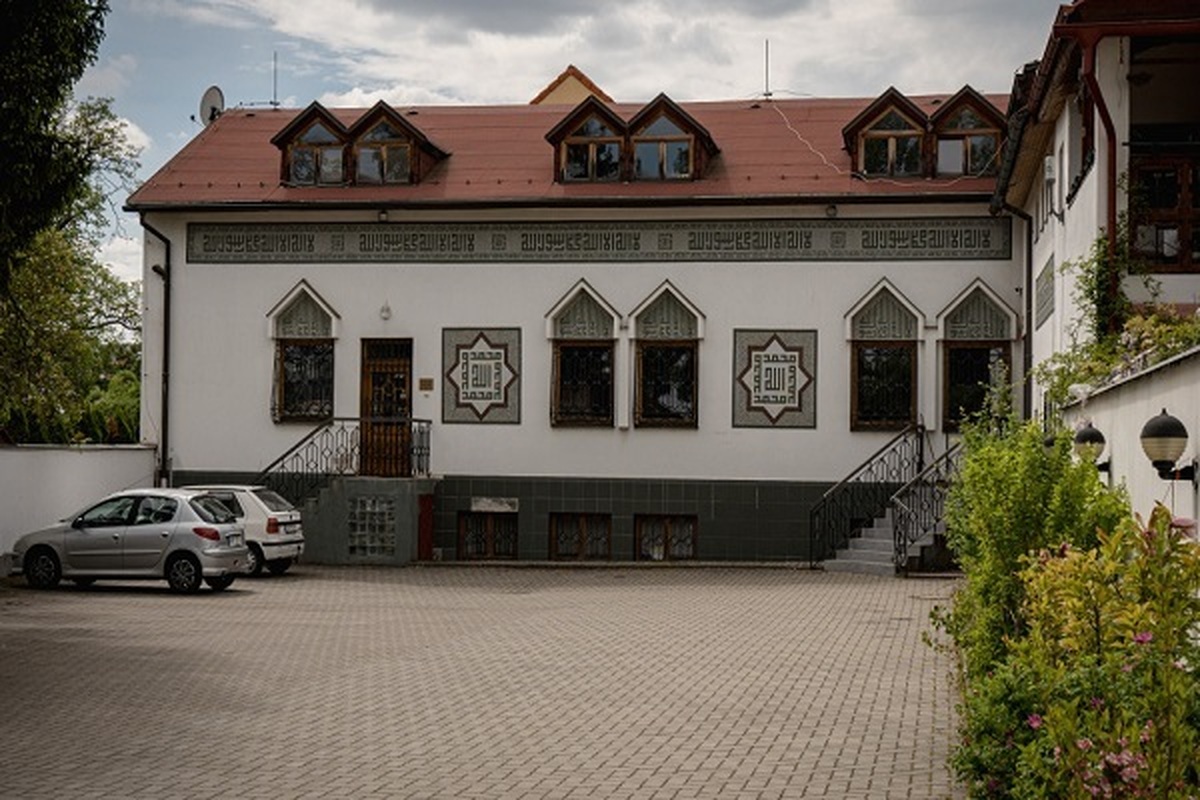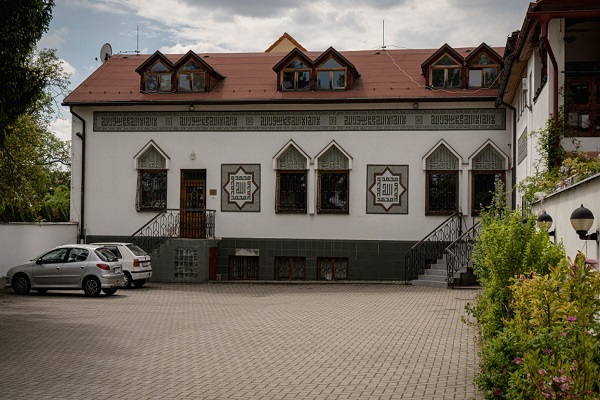Muslims Struggle to Find A Space to Set Up A Mosque in Czech Republic’s Capital


Over the past six months, the Islamic Foundation in the Czech Republic’s capital, Prague, has been rejected by property owners at least ten times, each time after disclosing their intention to establish a mosque. Their unsuccessful search for a space to set up a mosque continues.
According to the 2021 census, the Czech Republic has a Muslim population of roughly 5,000. Although there are no official figures for the total size of the Muslim community, including refugees and immigrants, some estimates place it at around 20,000, with most concentrated in Prague — a city known for its architecture, landscapes, and historic castles, and one of the most visited tourist destinations in Europe.
Importantly, Prague has previously had a mosque in the city center. The last one, located on the ground floor of a hotel, was closed after the property owner received over 500 complaints from neighboring residents and businesses.
Lazhar Maamri, Chairman of the Islamic Foundation in Prague, stated that some locals disliked Muslims due to a lack of understanding of Islam and added that the building owner informed him of local residents' objections to Muslims gathering outside after Friday prayers.
In saying this, Lazhar highlighted that the issue goes beyond mere discomfort and is partly rooted in racial prejudice. He stated, "When some local Czechs see a group of people with different skin tones and hair colors, they view it as a problem."
It is for the same reason, he said, they continue to struggle to find a space to establish a mosque in the city center. "The moment we tell the owners we want to rent the space for an Islamic center, they outrightly refuse."
Far-right hate
From Lazhar's perspective, the reluctance to accommodate a mosque is rooted in deep-seated anti-Muslim sentiment in the Czech Republic, particularly among far-right fringe groups.
Read More:
Incidents targeting Muslims have occurred for years. In 2009, unknown individuals placed the head of a pig on the fence of a mosque on the outskirts of Prague. Shortly after, a far-right group, the National Party, posted photos of the act online and called for Islam to be banned in the country. In 2013, vandals hung a piece of pork on the front door of a mosque in Brno — the Czech Republic’s second-largest city — and scattered pig bones around its entrance. The same mosque was vandalized again two years later.
Maamri, a 70-year-old Algerian who moved to Prague as an engineer and later settled there, recalled similar attacks on one of the city’s oldest mosques, also located on the outskirts.
“Sometime around 2014, someone placed the head of a pig on the main gate and threw pork ribs outside the mosque. Then in 2019, someone threw the entrails of a pig outside the front door of the mosque,” he said. Police investigations, he added, yielded no results.
According to Carlos Gómez del Tronco, head of the Just Europe Program at the EUROPEUM Institute for European Policy, anti-Muslim narratives have existed in Western Europe — and similarly in Czechia — since the 1980s.
In an email to The New Arab, he said, “These sentiments flared up since 2009 with center-right and far-right actors increasingly leaning on anti-Muslim rhetoric, building momentum between 2013 and 2014, albeit with limited traction among voters at the time.”
However, he argued that a significant shift occurred in 2015. “The rise in extremist attacks across Europe and the so-called refugee crisis made Islam and migration relevant topics in domestic politics. This led to two parallel shifts. First, anti-Muslim rhetoric moved into the mainstream. On the one hand, far-right actors became more visible, and on the other hand, ideas that had previously circulated only on the margins began being echoed by mainstream actors in politics, media, academia, or the state. This helped normalize views that would have been unacceptable just a few years earlier,” he said.
Carlos also explained that, in the public imagination, Muslims became associated with terrorism, fundamentalism, and cultural backwardness, adding, “Opposing ‘Muslim migration’ became a symbolic way to express positions on national security, cultural identity, citizenship, and EU governance at that particular historical moment.”
This mainstreaming of anti-Muslim views was echoed by then Czech President Miloš Zeman, known for his provocative remarks. In the same year, Miloš expressed hostility towards Muslim migrants and even suggested they had the potential to “blow up the Prague Castle.”
Read More:
That year also saw thousands of people take part in an anti-Muslim march in Wenceslas Square in central Prague, calling for refugees to be sent back and branding pro-immigration politicians as “traitors.”
Loss of community
Given this atmosphere of hostility, hopes for establishing a mosque in Prague’s city center remain limited. Maamri said there is a practical reason for wanting a centrally located mosque: most Muslim tourists visiting Prague do not travel to the outskirts to pray.
Similarly, hundreds of Muslims working in city-center shops, offices, or studying in nearby colleges struggle to reach the mosques currently located further out, often missing prayers as a result.
Suhaib Yousuf, a software engineer from India who has lived in Prague for over a year, emphasized the need for central accessibility. “A mosque in the center of Prague is important because it is accessible to everyone,” he said.
Suhaib noted that he used to attend Friday prayers at the former city-center mosque nearly every week. “Now there is no mosque in the city center, and it takes more than two-and-a-half hours to and from the office to the mosque. It is not possible to stay away from the office for that much time every Friday.”
But the issue goes beyond logistics. For many, the absence of a mosque has also eroded the sense of community. "Last Ramadan, I would go to the mosque in the center almost every day for Iftar. This year, I went only twice because the mosque is really far from where I live. The lack of a mosque in the center of Prague has really affected the sense of community among Muslims," Suhaib shared.
Al Hasan, a 24-year-old medical student in Prague, agreed. He described the mosque's closure as "a symptom of a broader misunderstanding and fear towards Muslims, rather than a genuine issue with the mosque itself," attributing it to "deeper societal perceptions shaped by historical and political factors."
Reflecting on the impact of the mosque’s absence, Al Hasan said, “There has been a decline in the collective spirit. I used to meet my Muslim brothers regularly — whether it was for prayer, social events, or just casual discussions about life, studies, or even planning meals together. Sadly, many of those connections have faded, possibly due to the absence of that shared spiritual space.”
Source: newarab.com



